Ford Explorer EV VS Tesla Model Y
In the battle of electric SUVs, the Ford Explorer EV and Tesla Model Y present two compelling choices for eco-conscious drivers. The Explorer EV boasts a spacious interior and robust towing capacity, appealing to families and outdoor enthusiasts, while the Model Y shines with its impressive range and advanced tech features. Ultimately, the decision will largely depend on whether buyers prioritize versatility or cutting-edge innovation in their electric vehicle experience.
Ford Explorer EV
The Ford Explorer EV marks a significant step forward in the brand's journey towards electrification, offering an impressive blend of performance and sustainability. This modern SUV features a sleek design complemented by advanced technology that enhances the driving experience. With a focus on comfort and innovation, the Explorer EV aims to redefine family travel for the electric age.
detailsTesla Model Y
The Tesla Model Y stands out in the electric vehicle market with its sleek design and impressive range. Its interior is minimalist yet stylish, offering a spacious cabin that enhances the driving experience. The Model Y also features advanced technology, including an intuitive infotainment system, making it a leader in innovative motoring.
detailsIntroduction: The New Face of Family SUVs
As the automotive industry shifts toward electrification, competition among electric SUVs is heating up. The Ford Explorer EV and Tesla Model Y stand as prime contenders in this rapidly evolving market. Each offers unique innovations, powertrains, and features aimed at capturing the hearts of families and tech-savvy drivers alike. In this comparison, we will delve into their technical specifications, performance, and overall value to help you decide which electrified SUV suits your needs best.
Powertrains and Performance
The Ford Explorer EV comes with a range of power options, delivering between 204 and 340 HP depending on the variant. It offers both Rear-Wheel Drive (RWD) and All-Wheel Drive (AWD) configurations, promoting versatility for varied driving conditions. The Explorer also boasts impressive torque figures, reaching up to 679 Nm, which contributes to a commendable acceleration of 0-100 km/h in just 5.3 seconds for high-performance models.
On the other hand, the Tesla Model Y shines with higher power outputs in its most robust configurations, cranking out up to 534 HP. It too is available in RWD and AWD, but its torque peaks at a staggering 660 Nm. This performance translates into an exhilarating 0-100 km/h time of just 3.7 seconds in the Performance model, making it a standout in the electric SUV segment.
Efficiency and Range
When it comes to energy consumption, the Ford Explorer EV shows decent metrics. It varies between 13.9 kWh to 16.6 kWh per 100 km depending on the chosen variant. The electric range is another strong point for the Explorer, maxing out at 602 km, enabling long road trips with fewer charging stops.
However, the Tesla Model Y has a slightly less impressive range, topping out at 600 km for the Long Range model. Its energy consumption ranges from 14.9 kWh to 17.3 kWh per 100 km, giving it a competitive edge in efficiency as well. Tesla has a reputation for stellar battery management, which is reflected in the Model Y's performance.
Interior Comfort and Technology
Both the Ford Explorer EV and Tesla Model Y seat up to five passengers, but the Model Y also offers a seven-seater configuration, making it a more flexible option for larger families. The Explorer EV flaunts a spacious trunk capacity of 450 to 445 liters, whereas the Model Y still takes the lead with an impressive storage volume of 854 liters.
When it comes to technology, Tesla's minimalist design and advanced infotainment system provide a futuristic interface. The large touchscreen controls nearly all functions and integrates the latest in software updates, ensuring the vehicle remains up-to-date with the latest features.
Safety and Eco-Friendliness
Both models boast top safety ratings and advanced driver-assistance systems. The Ford Explorer EV is engineered with Ford’s suite of safety technologies, offering features like adaptive cruise control and lane-keeping assist. Tesla is similarly acclaimed for its safety, empowered by the extensive suite of Autopilot features, which provide semi-autonomous driving capabilities. In terms of eco-friendliness, both vehicles emit 0 g/km CO2, contributing positively toward reducing urban air pollution.
Final Thoughts: Which SUV Reigns Supreme?
The Ford Explorer EV stands as a well-rounded electric SUV, offering good performance, excellent range, and a comfortable interior, making it a fantastic family vehicle. Meanwhile, the Tesla Model Y elevates the experience with superior acceleration, innovative technology, and unmatched storage capacity.
Ultimately, the choice between the Ford Explorer EV and the Tesla Model Y hinges on individual preferences and priorities. If performance and cutting-edge tech are at the forefront of your decision-making process, the Model Y may be your best bet. However, for those who value versatility and a robust offering for family use, the Ford Explorer EV is certainly a compelling candidate. The electrified SUV market continues to expand, and both these models bring exciting innovations that pave the way for a more sustainable automotive future.
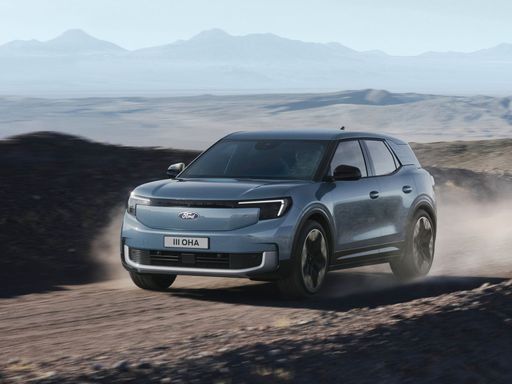 @ electricexplorer.fordpresskits.com
@ electricexplorer.fordpresskits.com
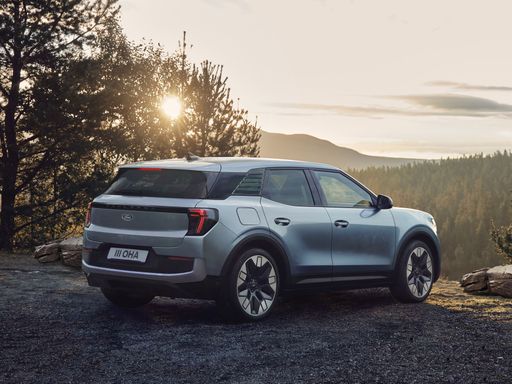 @ electricexplorer.fordpresskits.com
@ electricexplorer.fordpresskits.com
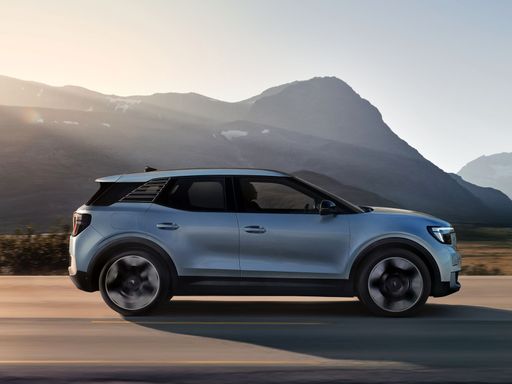 @ electricexplorer.fordpresskits.com
@ electricexplorer.fordpresskits.com
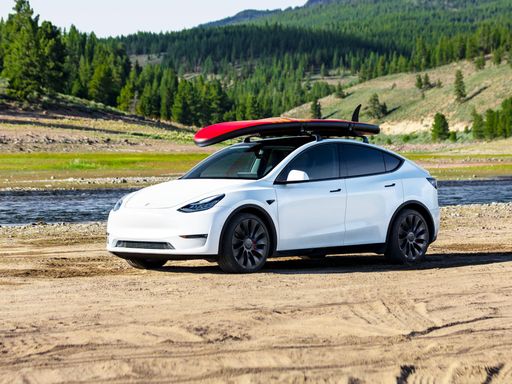 @ tesla.com
@ tesla.com
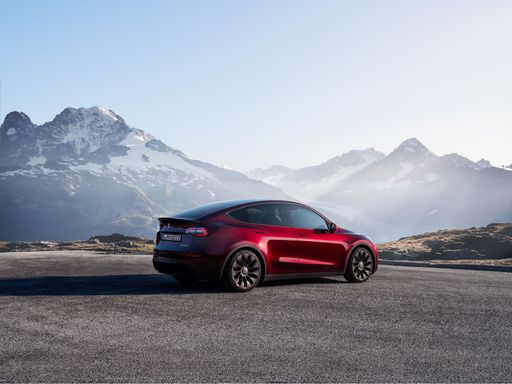 @ tesla.com
@ tesla.com
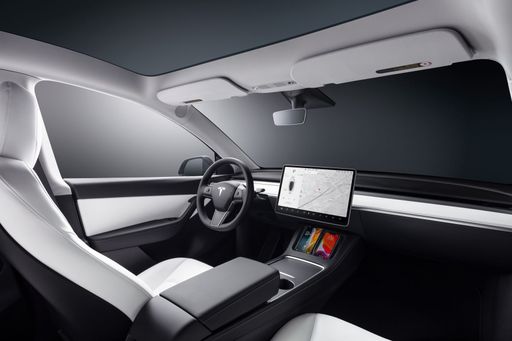 @ tesla.com
@ tesla.com
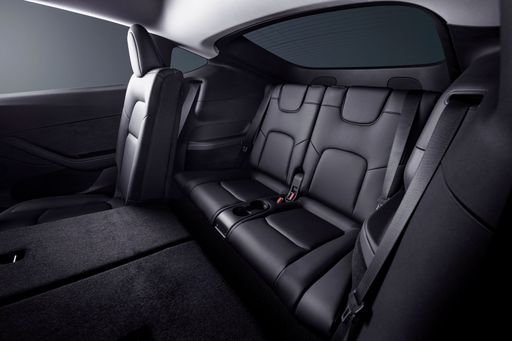 @ tesla.com
@ tesla.com

|

|
|
|
|
Costs and Consumption |
|
|---|---|
|
Price
about 36400 - 49000
£
|
Price
about 38600 - 51400
£
|
|
Consumption L/100km
-
|
Consumption L/100km
-
|
|
Consumption kWh/100km
13.9 - 16.6
kWh
|
Consumption kWh/100km
14.9 - 17.3
kWh
|
|
Electric Range
365 - 602
km
|
Electric Range
455 - 600
km
|
|
Battery Capacity
52 - 79
kWh
|
Battery Capacity
62 - 79
kWh
|
|
co2
0
g/km
|
co2
0
g/km
|
|
Fuel tank capacity
-
|
Fuel tank capacity
-
|
Dimensions and Body |
|
|
Body Type
SUV
|
Body Type
SUV
|
|
Seats
5
|
Seats
5 - 7
|
|
Doors
5
|
Doors
5
|
|
Curb weight
2090 - 2167
kg
|
Curb weight
1909 - 1995
kg
|
|
Trunk capacity
445 - 450
L
|
Trunk capacity
363 - 854
L
|
|
Length
4468
mm
|
Length
4751
mm
|
|
Width
1871
mm
|
Width
1921
mm
|
|
Height
1630 - 1639
mm
|
Height
1624
mm
|
|
Payload
573 - 585
kg
|
Payload
639 - 660
kg
|
Engine and Performance |
|
|
Engine Type
Electric
|
Engine Type
Electric
|
|
Transmission
Automatic
|
Transmission
Automatic
|
|
Transmission Detail
Reduction Gearbox
|
Transmission Detail
Reduction Gearbox
|
|
Drive Type
Rear-Wheel Drive, All-Wheel Drive
|
Drive Type
Rear-Wheel Drive, All-Wheel Drive
|
|
Power HP
170 - 340
HP
|
Power HP
299 - 534
HP
|
|
Acceleration 0-100km/h
5.3 - 6.4
s
|
Acceleration 0-100km/h
3.7 - 6.9
s
|
|
Max Speed
180
km/h
|
Max Speed
217 - 250
km/h
|
|
Torque
310 - 679
Nm
|
Torque
420 - 660
Nm
|
|
Number of Cylinders
-
|
Number of Cylinders
-
|
|
Power kW
125 - 250
kW
|
Power kW
220 - 393
kW
|
|
Engine capacity
-
|
Engine capacity
-
|
|
Top speed
180
km/h
|
Top speed
217 - 250
km/h
|
General |
|
|
Model Year
2024
|
Model Year
2021 - 2024
|
|
CO2 Efficiency Class
A
|
CO2 Efficiency Class
A
|
|
Brand
Ford
|
Brand
Tesla
|
Ford Explorer EV
Unveiling the Future: The Ford Explorer EV
The all-new Ford Explorer EV makes a bold statement in the electric vehicle market with its amalgamation of cutting-edge technology, expansive features, and forward-thinking design. As Ford moves towards a more sustainable future, the Explorer EV stands out as a prime example of the brand's commitment to innovation and performance.
Power and Performance
Beneath its stylish exterior, the Ford Explorer EV boasts a powerful electric motor offering a range of power outputs from 170 PS to an impressive 340 PS. The vehicle provides either rear-wheel drive or an advanced all-wheel-drive system that ensures optimal traction and stability under diverse driving conditions. Thanks to its rapid acceleration, the Explorer EV races from 0 to 100 km/h in as little as 5.3 seconds, while maintaining a top speed of 180 km/h across its variants.
Battery Efficiency and Range
A major highlight of the Explorer EV is its varied battery options, which define its 'Standard Range' and 'Extended Range' models. With capacities ranging from 52 kWh to 79 kWh, the EV offers an impressive driving range of up to 602 km on a single charge. The electric consumption holds remarkable efficiency, varying between 13.9 kWh/100km and 16.6 kWh/100km, highlighting Ford’s innovation in energy management.
Interior Comfort and Technology
Inside, the Explorer EV exudes comfort with its high-quality materials and a spacious layout that accommodates up to five passengers. The vehicle is available in several trim levels, including the luxurious 'Premium' and 'Limited Edition', each outfitted with state-of-the-art technology. Drivers benefit from an intuitive infotainment system, comprehensive digital displays, and a variety of connectivity options that make every journey pleasurable and efficient.
Safety and Sustainability
Safety remains a priority for Ford, evident in the Explorer EV's suite of advanced safety features. The vehicle is equipped with cutting-edge driver-assistance technologies that work tirelessly to safeguard passengers with features such as adaptive cruise control and lane-keeping assist. Moreover, as a zero-emission vehicle, it proudly boasts a CO2 efficiency class rating of A, underpinning its eco-friendly credentials and Ford’s commitment to reducing the carbon footprint.
Pricing and Availability
The Ford Explorer EV is set to make waves with its competitive pricing. Starting between €42,500 and €57,200 depending on the trim and features, it offers exceptional value for those looking for a high-performing and sustainable SUV. The 2024 model is now available for order and promises to redefine expectations in the electric SUV segment.
Final Thoughts
The Ford Explorer EV embodies a harmonious blend of style, efficiency, and technological innovation. As a harbinger of Ford's electric future, it promises not just to meet but exceed the expectations of modern consumers by delivering an exceptional driving experience that is both versatile and responsible.
Tesla Model Y
Revolutionising the SUV Market: Introducing the Tesla Model Y
The Tesla Model Y has emerged as a trailblazer in the electric vehicle market, combining innovative technology with practicality to redefine what an SUV can offer. With its sleek design and exceptional performance, it's no surprise that this model is capturing the attention of car enthusiasts and eco-conscious drivers alike.
Unparalleled Performance and Efficiency
At the heart of the Tesla Model Y lies its impressive range of power and efficiency options. With power ratings from 299 to 534 PS, the Model Y offers something for every driver. It boasts an impressive electric range from 455 to 600 km, allowing drivers to embark on long journeys with confidence.
An advanced lithium-ion battery, with capacities ranging from 62 to 79 kWh, powers this remarkable vehicle. This ensures not only a robust performance but also efficiency, with consumption figures between 14.9 kWh and 17.3 kWh per 100 km, making it a leader in its class.
Advanced Technology and Safety
Tesla is renowned for its technology-forward approach, and the Model Y is no exception. It features the state-of-the-art Autopilot system, designed to assist with driving and to enhance safety on the road. This includes features such as adaptive cruise control, lane detection, and automatic lane-keeping, which work seamlessly to reduce driver fatigue and improve overall road safety.
The Model Y has achieved a superb CO2-Effizienzklasse rating of A, reflecting its zero-emissions performance, thanks to its fully electric powertrain. This aligns perfectly with Tesla's mission of accelerating the world’s transition to sustainable energy.
Design and Comfort
One glance at the Tesla Model Y, and it is clear that it combines utility with elegance. This SUV offers ample space, marked by a large interior and a boot capacity of 854 litres, making it an ideal vehicle for both family and leisure activities. However, the Model Y does not sacrifice aesthetics for practicality, embodying a minimalist and aerodynamic design that stands out on any road.
Inside, the focus is on comfort and connectivity. The Model Y features a panoramic glass roof, spacious seating for five, and a central 15-inch touchscreen that controls most in-car functions. This screen serves as the central hub for navigation, media, and communication systems, further highlighting Tesla's commitment to integrating sophisticated technology.
Final Thoughts: A Game-Changer in Electric SUVs
The Tesla Model Y is more than just an electric vehicle; it is a testament to what the future of driving looks like. From its performance capabilities to its innovative technology and design, the Model Y continues to set benchmarks in the automotive industry.
For those looking to combine sustainability with performance, the Model Y offers such an opportunity in an attractive package. It is not just a vehicle; it's a statement of forward-thinking mobility and advanced engineering, paving the way for the next era of automotive excellence.
